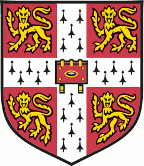
Junior Clinical Training Scholar in Farm Animal Health and Production
Scholarship award: £21,970.00 per annum (Tax Exempt), inclusive of the accommodation package.
Start date: from September 2025, or as soon as possible thereafter, for 12 months
Applications are invited for this 12-month Scholarship programme, which provides an opportunity for new graduates or recently qualified veterinarians to receive high-quality postgraduate training in farm animal studies under the supervision of experienced farm animal clinicians in the Cambridge Farm Animal Veterinary Services ambulatory and referral practice at the University of Cambridge. The emphasis of the programme is on gaining practical clinical experience in farm animal medicine and herd health and will allow the Scholar to identify specific fields of farm animal work in which to specialise, either in preparation for Senior Clinical Training Scholarship programmes, or for specialist private practice.
The internship will cover:
- Case involvement of individual production animals, including emergency and critical care, surgery, anaesthesia, diagnostics, internal medicine and obstetrics
- Involvement in a busy and expanding first opinion farm animal practice and referral hospital
- Training and practice in population medicine and herd health management, with an emphasis on evidence-based medicine
- Experience in teaching and communication
- Basic tuition in research methods and scientific writing
- Opportunity to design and undertake research projects
Summary of benefits
- Competitive tax-free stipend including accommodation in Central Cambridge and bills included package
- Good work-life balance with manageable weekend and night work
- University library and journal access
- 2 weeks of elective/dedicated research time on top of holidays
- Academic opportunities, e.g. teach Cambridge students during rotations and College supervisionopportunities; weekly department research and clinical seminars; journal and book clubs
- Proven track-record with publications and research projects with guidance on presentation and scientific writing skills
- Assigned intern supervisor: - regular progress meetings, interview practice, provision of professional references and CV/cover letter proof reading by experienced senior clinicians to aid residency applications
- Generous CPD allowance and encouragement to present at scientific meetings
To learn more about the Farm Animal Veterinary Services and the Department, please visit: https://www.hospital.vet.cam.ac.uk/farm-animal.
Informal enquiries should be directed to: Ian McCrone, by email: ism27@cam.ac.uk.
Applicants must be a Member of the Royal College of Veterinary Surgeons or hold a veterinary degree qualifying them for membership.
A JCTS Application Form (JCTS 1) and Information Pack can be downloaded from the following website: https://www.vet.cam.ac.uk/job.
Applicants should supply a completed Junior Clinical Training Scholarship Application Form (JCTS 1), a CV and Covering Letter giving reasons for wishing to undertake the JCTS in the Department of Veterinary Medicine, University of Cambridge.
Applications should be submitted via e-mail to: vetmed@vet.cam.ac.uk with the above documents as one attachment, by the closing date stated. Please quote reference PP45804 on your application and in any correspondence about this vacancy.
The deadline for applications is midnight on Monday 26th May 2025. Interviews will be held Monday 9th June 2025.
We reserve the right to close this vacancy early if we receive sufficient applications or extend it if we do not receive a sufficient number of applications. Therefore, if you are interested, please submit your application as early as possible.
The University actively supports equality, diversity and inclusion and encourages applications from all sections of society.
Please note: The ability to take up this Scholarship is contingent upon you being able to evidence your right to work in the UK, or through gaining the right to work via the UK immigration system. Evidence will need to be provided before an offer can be made. Regrettably, this Scholarship is not suitable for sponsorship via the Skilled Worker or Temporary Worker visa routes as the minimum requirements cannot be met.
Pat Brooks SCTS in Small Animal Medicine
SCHOLARSHIP AWARD: £28,738.00 (Subject to change)
A three-year Senior Clinical Training Scholarship in Small Animal Medicine (Residency) is available, to start on 11 August 2025. The training programme covers all aspects of small animal medicine, including cardiology, oncology, medical neurology, diagnostic imaging and clinical pathology, and is approved by the European College of Veterinary Internal Medicine.
The Scholar will register for the Diploma of the European College of Veterinary Internal Medicine. The training programme requires participation in the Department's clinical service, including the out-of-hours rota, in addition to small-group teaching of veterinary students.
An applicant must be a Member of the Royal College of Veterinary Surgeons, or hold a veterinary degree that qualifies them for membership. Completion of an appropriate internship or a minimum of two years' experience in small animal practice, during which you have gained knowledge of UK veterinary regulations and practices, is essential.
Closing date for applications: Midnight on Monday, 10 February 2025.
Interviews will be held early April 2025.
Informal enquiries should be directed to Nick Bexfield, Clinical Director of Small Animal Services, by email: nb289@cam.ac.uk
A SCTS application form (SCTS1) and information pack can be downloaded from the following website: https://www.vet.cam.ac.uk/job
Applicants should supply a completed SCTS Application Form (SCTS1), Curriculum Vitae and Covering Letter giving reasons for wishing to undertake this SCTS in the Department of Veterinary Medicine, University of Cambridge.
Applications should be submitted via e-mail to vetmed@vet.cam.ac.uk with the above documents as one attachment no later than the closing date stated.
Once an offer of employment has been accepted, the successful candidate will be required to undergo a health assessment.
Please note: The ability to take up this Scholarship is contingent upon you being able to evidence your right to work in the UK, or through gaining the right to work via the UK immigration system. Evidence will need to be provided before an offer can be made. Regrettably, this Scholarship is not suitable for sponsorship via the Skilled Worker or Temporary Worker visa routes as the minimum requirements cannot be met.
PhD Studentship: MHC class I antigen processing and presentation in virus immune detection and evasion
Applications are invited for a fully-funded 4-year PhD studentship based in the Department of Pathology at the University of Cambridge under the supervision of Dr Arwen Altenburg starting October 2025.
Major histocompatibility complex (MHC) class I molecules play an essential role in alerting immune cells to cellular changes in infected and cancer cells. They do this by presenting peptides derived from pathogen and tumour proteins to immune cells. To evade immune detection, viruses have evolved strategies to manipulate MHC class I or other proteins in the antigen processing and pathway. Our research explores the MHC class I pathway in virus infections to enhance our understanding of MHC class I biology and virus-host interactions. Through the characterisation of these dynamics, we aim to enable future innovation of vaccines and therapeutics.
For more information please see here: https://www.path.cam.ac.uk/graduate/fully-funded-studentships
Funding* will cover the student's stipend at the current Research Council rate and University Fees. The studentship will be funded for four years from October 2025.
The studentships are available to students who qualify for UK Home fees. Please check for eligibility details; https://www.postgraduate.study.cam.ac.uk/finance/fees/what-my-fee-status.
Applicants should hold (or expect to obtain) the equivalent of a UK 2.1 or higher in an undergraduate honours or Masters degree in a relevant subject. The studentship is open to those eligible for the Home rate of University fees.
All applications should be made online via the University's Applicant Portal; https://apply.postgraduate.study.cam.ac.uk/applicant/login?dswid=6631 for a PhD in Pathology (BLPA22). Applications should include academic transcripts, CV, statement of purpose and 2 references. An application is only complete when all supporting documents, including the 2 academic references, are submitted. It is the applicant's responsibility to ensure their referees submit their references before the closing date (2nd March 2025). Please also explain your motivation why you wish to pursue a PhD in this area, outline your research interests and background, and describe the qualities and experience you will bring to the role.
Please quote reference PK44971 on your application and in any correspondence about this vacancy.
The University actively supports equality, diversity and inclusion and encourages applications from all sections of society.
The University has a responsibility to ensure that all employees are eligible to live and work in the UK.
PhD Studentship
Somatic evolution of the immune response to chronic inflammation and liver cancer progression through single-cell multiomics
Applications are invited for a fully-funded 4-year PhD studentship based in the Department of Pathology at the University of Cambridge under the supervision of Dr Heather Machado starting October 2025.
Our body's immune system is one of the most powerful tools in the fight against cancer. An improved understanding of how the adaptive immune system evolves in the context of cancer, including the effects of chronic inflammation and the phenotypic changes from premalignancy to cancer progression, could lead to improved cancer outcomes. However, these immune dynamics are difficult to study directly in humans due to longitudinal sampling constraints. To overcome these obstacles, this project will apply state-of-the-art lineage tracing techniques and single-cell multiomics to track CD8+ T cell dynamics in an inflammatory premalignancy and the resulting liver cancer.
For more information please see here: https://www.path.cam.ac.uk/graduate/fully-funded-studentships
Funding* will cover the student's stipend at the current Research Council rate and University Fees. The studentship will be funded for four years from October 2025.
The studentships are available to students who qualify for UK Home fees.
Please check for eligibility details; https://www.postgraduate.study.cam.ac.uk/finance/fees/what-my-fee-status.
Applicants should hold (or expect to obtain) the equivalent of a UK 2.1 or higher in an undergraduate honours or Masters degree in a relevant subject. The studentship is open to those eligible for the Home rate of University fees.
All applications should be made online via the University's Applicant Portal for a PhD in Pathology (BLPA22). Applications should include academic transcripts, CV, statement of purpose and 2 references. An application is only complete when all supporting documents, including the 2 academic references, are submitted. It is the applicant's responsibility to ensure their referees submit their references before the closing date. Please also explain your motivation why you wish to pursue a PhD in this area, outline your research interests and background, and describe the qualities and experience you will bring to the role.
Please quote reference PK44919 on your application and in any correspondence about this vacancy.
The University actively supports equality, diversity and inclusion and encourages applications from all sections of society.
The University has a responsibility to ensure that all employees are eligible to live and work in the UK.
PhD Studentship: Discovering the determinants of host tropism of an emerging livestock pathogen
This is a 3.5 year fully funded studentship including a UKRI-aligned stipend (£19,237 for 2024/25), a cost of living allowance of £2,200 per annum, and Home rated university tuition fees. International applicants may apply, however will attract tuition fees at the overseas rate and must show evidence of their ability to cover the difference between Home fees and Overseas fees for the duration of study.
Students without English as a first language must provide evidence that they meet the English language requirement, e.g. with an average IELTS score of 7.0, as detailed: https://www.postgraduate.study.cam.ac.uk/courses/directory/blpapdpth/requirements.
The student will be registered with the University of Cambridge and will work at both The Pirbright Institute and in Cambridge. Highly subsidised Pirbright Institute student housing will be offered. A full range of research and transferrable skills training will be made available to the student as appropriate.
Principal Supervisors: Dr Jonas Albarnaz (The Pirbright Institute), Prof Stephen Graham (University of Cambridge)
Co-Supervisor: Dr Dalan Bailey (The Pirbright Institute)
Research Group: https://www.pirbright.ac.uk/our-science/research-groups/capripoxvirus-biology
PROJECT DETAILS:
An evolutionary arms race for supremacy exists between viruses and their hosts' immune systems. Viruses rely on cellular resources and machinery for their replication, and cells defend themselves from viruses by recognising and blocking infections. Therefore, viruses continually evolve new strategies (i) to subvert cellular biosynthetic machinery to support viral replication whilst (ii) escaping the host cell's antiviral defences, and in turn hosts counter-evolve to overcome viral antagonism of their antiviral defences. Mammals are equipped with a complex immune system that plays an essential role fighting off viral infections through the actions of professional immune cells that recognise and mount an antiviral immune response, processes that have been investigated in detail. However, there exists another layer of immunity that functions at an intracellular level, where newly infected cells try to recognise and abort infection before the virus can take over the cellular biosynthetic machinery. We investigate these early virus-host interactions at the cellular level.
Full Project Details: https://www.pirbright.ac.uk/careers-and-learning/education-programme/postgraduate-studentships
ELIGIBILITY AND FUNDING:
This studentship is open to science graduates with, or who anticipate obtaining, at least a 2:1 or equivalent in a relevant biological subject in an undergraduate degree, or with a Masters degree - subject to university regulations. Other first degrees, e.g. veterinary science, will be considered. You should be looking for a challenging, interdisciplinary research training environment and have an active interest in the control of infectious diseases.
Please quote reference PK44721 on your application and in any correspondence about this vacancy.
The University actively supports equality, diversity and inclusion and encourages applications from all sections of society.
The University has a responsibility to ensure that all employees are eligible to live and work in the UK.




